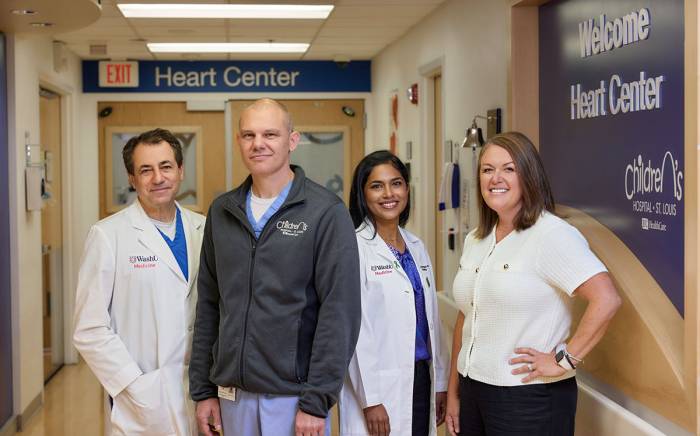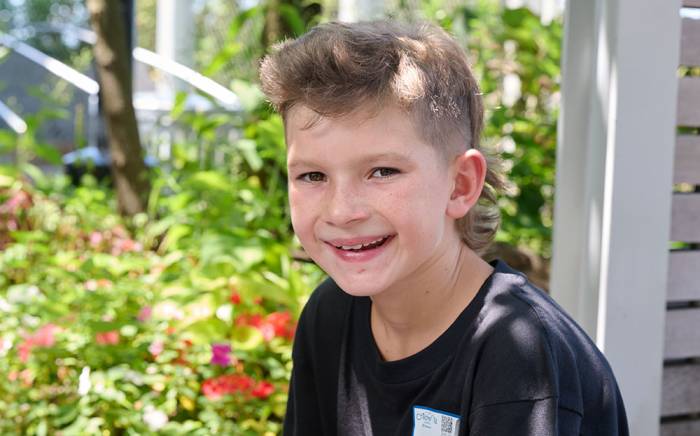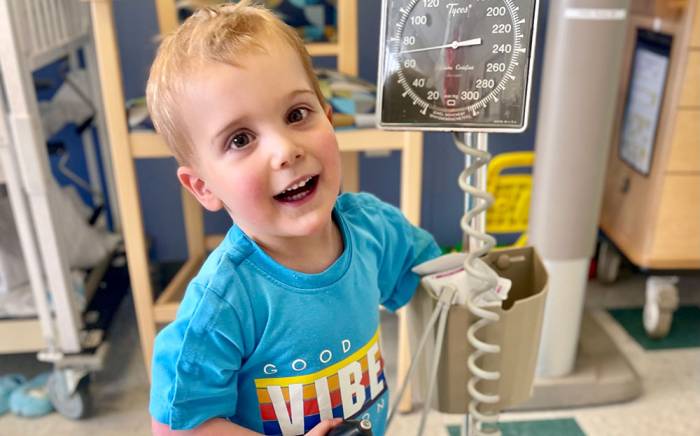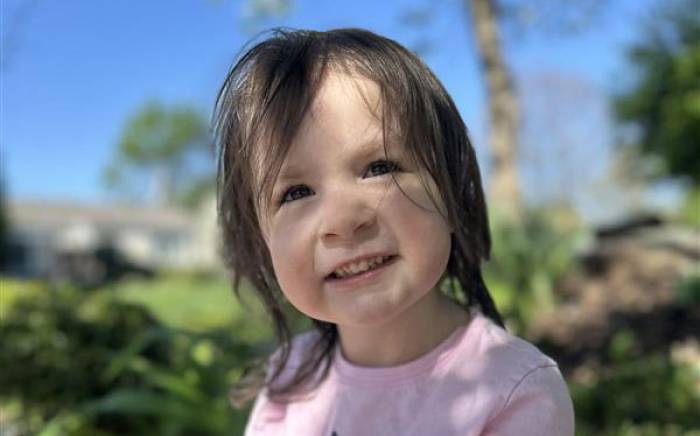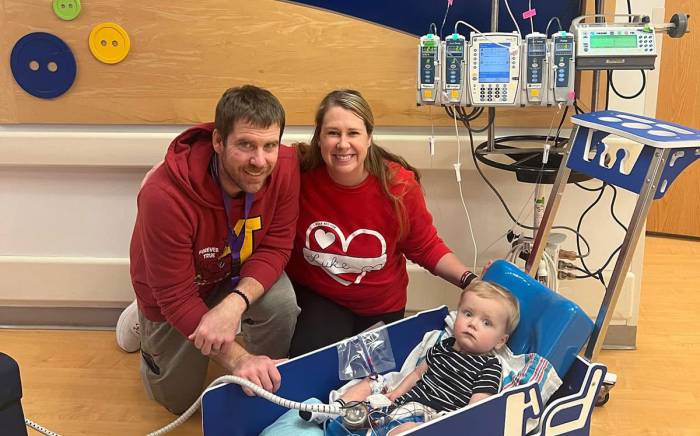St. Louis Children’s Hospital now offers “in-house” magnetic resonance imaging (MRI) scans for children with pacemakers and implantable cardioverter defibrillators (ICDs).
Placed under the skin in the chest, a pacemaker is a small device that carries electrical impulses to the heart using specialized wires called leads. These leads travel through the veins and connect the pacemaker or ICD battery to the heart to help it beat more regularly.
Magnets, like MRIs, can interfere with the ability of these devices to function properly, and for many years, patients with pacemakers and ICDs could not have MRI scans. Understanding that patients with these devices needed access to this testing, manufacturers began to develop MRI-conditional pacemakers and ICDs so that patients could undergo MRI scans safely.
Before performing its first MRI scan on a patient with a pacemaker at St. Louis Children’s Hospital in November 2020, a multidisciplinary team of specialists worked diligently and carefully to design and implement the necessary protocols, safety guidelines and procedures.
Aarti Dalal, DO, Washington University pediatric cardiologist at St. Louis Children’s Hospital, appreciates the advancements in technology and the teamwork behind the scenes. “A cardiacMRI is an essential diagnostic tool that lets clinicians look at a detailed 3D image of the heart as it pumps blood so we can identify abnormalities,” she explained. The scans are most often used for children with complex – and often critical – heart issues and help cardiologists and surgeons see the anatomy to determine the best treatment plan.
When performing MRI scans on children with pacemakers and ICDs, a team of electrophysiologists (EP), radiologists, physicists, physician assistants, nurses, and radiology technicians meet a few weeks in advance to review every upcoming patient case. During the scan, an electrophysiologist and an EP physician’s assistant are present to monitor the patient’s heart rhythm and device before, during and after the test. “It’s very much a collaborative effort that focuses on safety,” Dr. Dalal said.
Prior to having this capability in-house, pediatric heart patients with pacemakers and ICDs were sent to Barnes-Jewish Hospital for these scans. Dr. Dalal said that the ability to perform MRIs at Children’s Hospital gives pediatric heart patients and their families added convenience. “Patients don’t have to leave our hospital, and that makes an enormous difference,” she said. “Our patients benefit from a range of services like pediatric anesthesia and child life services, a program that promotes a positive experience for children, youth and families.”
Now that Children’s Hospital is performing MRI scans for patients with pacemakers and ICDs, experts are looking to the future and continue to think about ways to improve and expand the services they provide for patients.
“We are a multidisciplinary team dedicated to caring for our patients and supporting families through whatever health challenges their child is facing,” Dr. Dalal said. “We are always working to make it better.”
To learn more about imaging services at St. Louis Children’s Hospital or to refer a patient, contact Children’s Direct at 800.678.HELP (5437).

